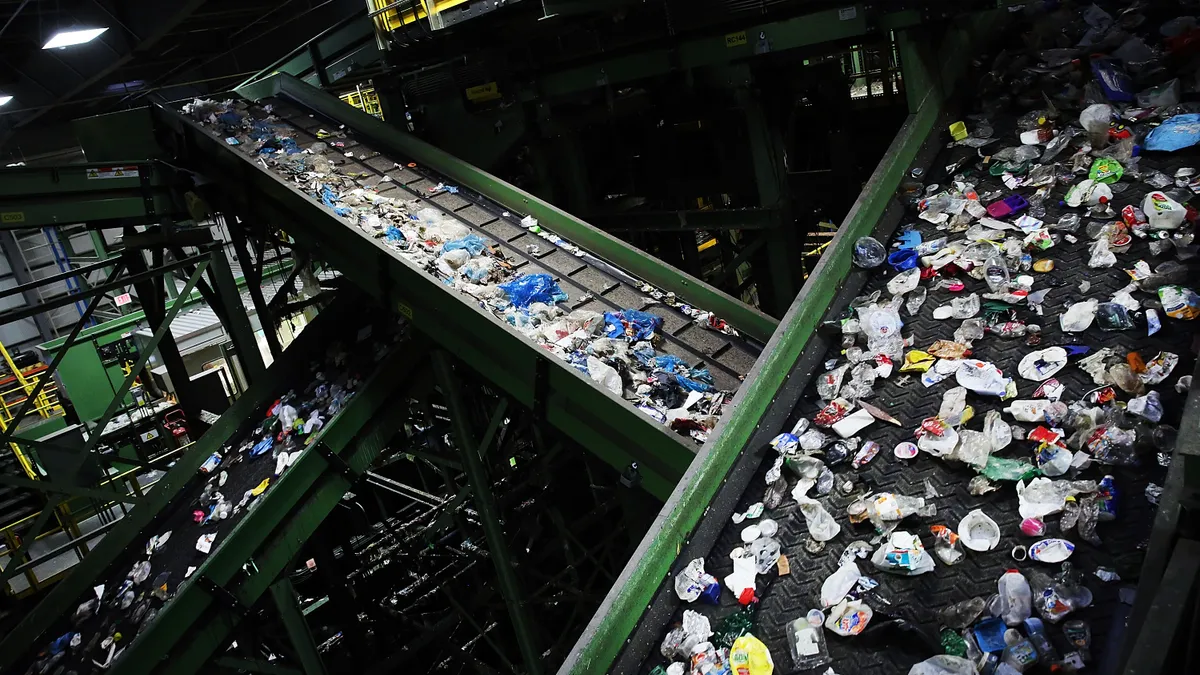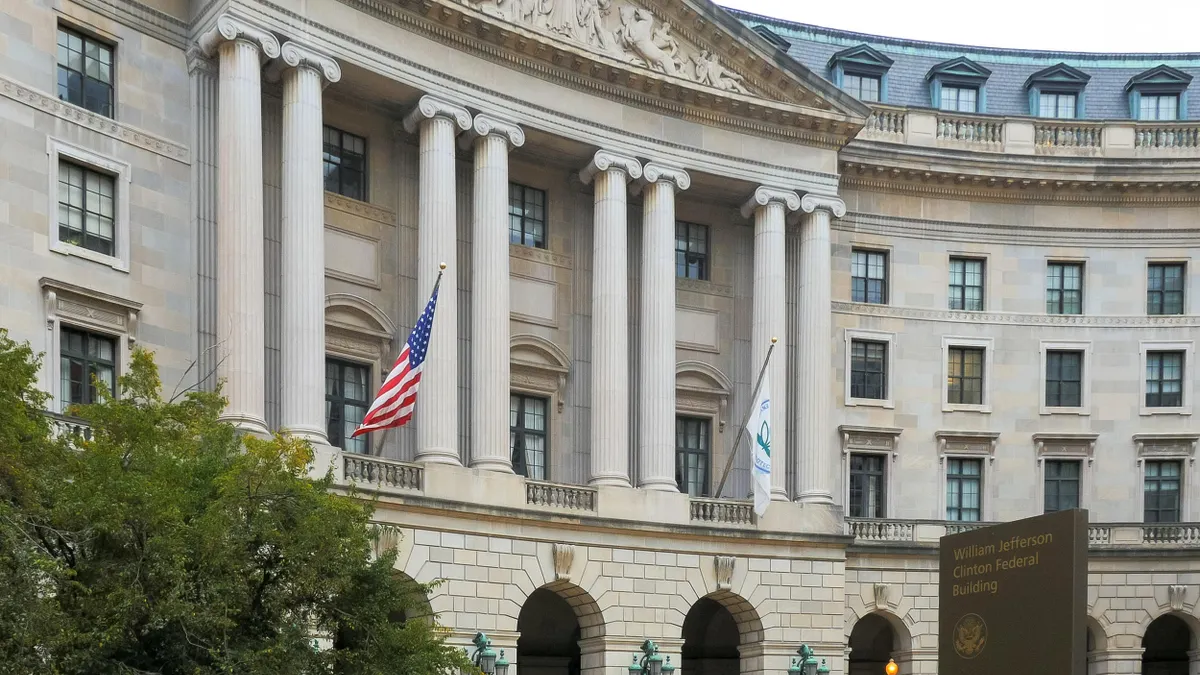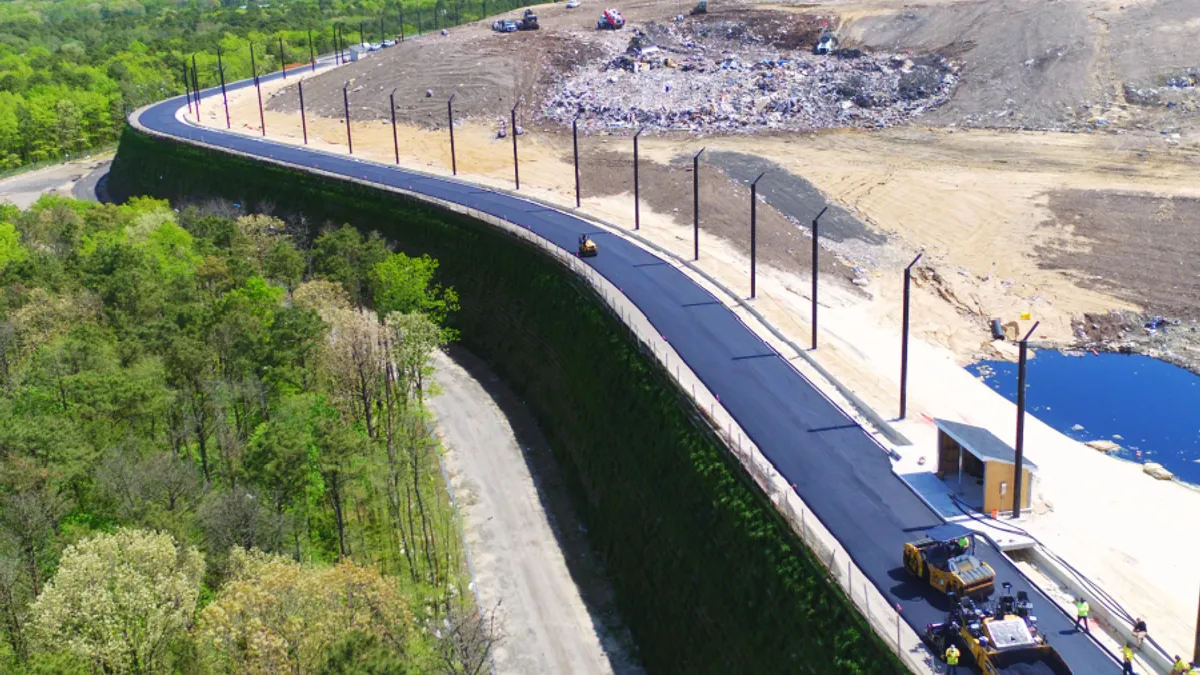Supporters of a new investment tax credit bill are leaning into its bipartisan elements in an effort to boost recycling infrastructure spending across the country.
The Cultivating Investment in Recycling and Circular Local Economies (CIRCLE) Act calls for establishing a 30% investment tax credit on private investments in certain recycling infrastructure, phased out over 10 years. Local municipalities that make similar investments would receive a direct rebate equal to the credit, according to the bill.
It’s co-sponsored by Reps. Tom Suozzi, D-N.Y., and Brian Fitzpatrick, R-Pa. The Recycling Partnership, the main bill supporter, spent the last few months organizing stakeholders from a range of industry and environmental groups. Supporters include the Solid Waste Association of North America, Association of Plastic Recyclers, the Aluminum Association, The Recycled Materials Association, Closed Loop Partners, Keurig Dr. Pepper, World Wildlife Fund and others.
Anthony Tusino, The Recycling Partnership’s director of public policy and government affairs, said the bill offers common ground by touching on themes that both Republicans and Democrats value.
“On the conservative side, we see enthusiasm for domestic investment and domestic manufacturing, while on the other side of the spectrum, we see real enthusiasm because of the environmental benefits of recycling,” he said. That makes the CIRCLE Act “pretty naturally bipartisan, because we see real convergence around the same principles and the same concepts — maybe from different perspectives — but they naturally align in the CIRCLE Act and in other areas of recycling.”
According to the bill, the tax credit would reduce a private entity’s tax liability on qualified investments on infrastructure designed to recycle paper, metals, glass, aluminum and other materials. Investments could include items like machinery, operational equipment or software, TRP said.
The bill is also designed to help local governments that often bear the costs of waste management improvements, as such municipalities sometimes have “no choice but to pass those costs on to constituents in the form of taxes,” said Suozzi, who previously served in local government before his time in Congress, in a statement.
The Recycling Partnership estimates the bill could save local governments $9.4 billion while also diverting more material from disposal. CEO Keefe Harrison added in a statement that the bill could also help generate up to 200,000 new jobs and divert 169 million tons of recycled materials to domestic markets.
Under the Trump administration, the U.S. government has seen recycling investments as a key way to rely less on other countries for critical materials used in manufacturing. Lawmakers underscored that perspective during a Congressional hearing last week exploring options for bolstering chemical recycling, framing it as an economic driver.
Fitzpatrick called CIRCLE a “fiscally smart, environmentally responsible solution” for building reliable and efficient recycling systems that can strengthen domestic supply chains and keep the U.S. competitive on a global economic stage.
“We really recognize that domestic manufacturing and investments in the American economy are really important, and so we built the CIRCLE Act to live up to that expectation,” Tusino said. “There is a need for investment in the national recycling system, as we know very well, and so how could we build incentives to increase that investment?”
Amy Lestition Burke, CEO of SWANA, noted that the bill will help reframe waste as an important resource. “Greater investment in recycling infrastructure is vital to expand our supply chain resilience in the U.S. Many of our recycling facilities are decades old and in need of upgrades or replacements, while some parts of the country are still lacking basic recycling infrastructure,” she said in a statement.
Robin Wiener, president of ReMA, said in a statement that the bill’s proposed 30% tax credit for certain recycling infrastructure will create positive ripple effects in the industry, such as helping to “unlock private capital, drive innovation, increase material recovery, and help scale domestic processing capacity.” The bill, she said in a statement, “sends a clear signal: recycling is not just good policy—it’s essential to American prosperity.”
The bill is also designed to fit into other state-level economic drivers for recycling, such as state extended producer responsibility programs. Seven states have passed such laws for packaging, and each includes a range of strategies for funding recycling infrastructure and other initiatives.
“At the state level, we have EPR, labeling systems and recycled content frameworks, but at the national level, what was really ripe was conversations about the tax code and investing in American jobs, infrastructure and so on,” Tusino said.
The Recycling Partnership sees a national EPR program as an “end goal,” but the CIRCLE Act is a sort of “on-ramp” to helping scale up infrastructure regardless of whether a state has adopted EPR for packaging.
The bill’s economic focus will also help spur important environmental improvements, said Alejandro Pérez, senior vice president of policy and government affairs at the World Wildlife Fund, in a statement.
“Recycling in our country needs to be easier to access and more effective at keeping the waste we produce out of nature,” he said, adding that the CIRCLE Act will “keep discarded plastic, paper, metals, glass, and other materials in our economy and out of our environment.”




















